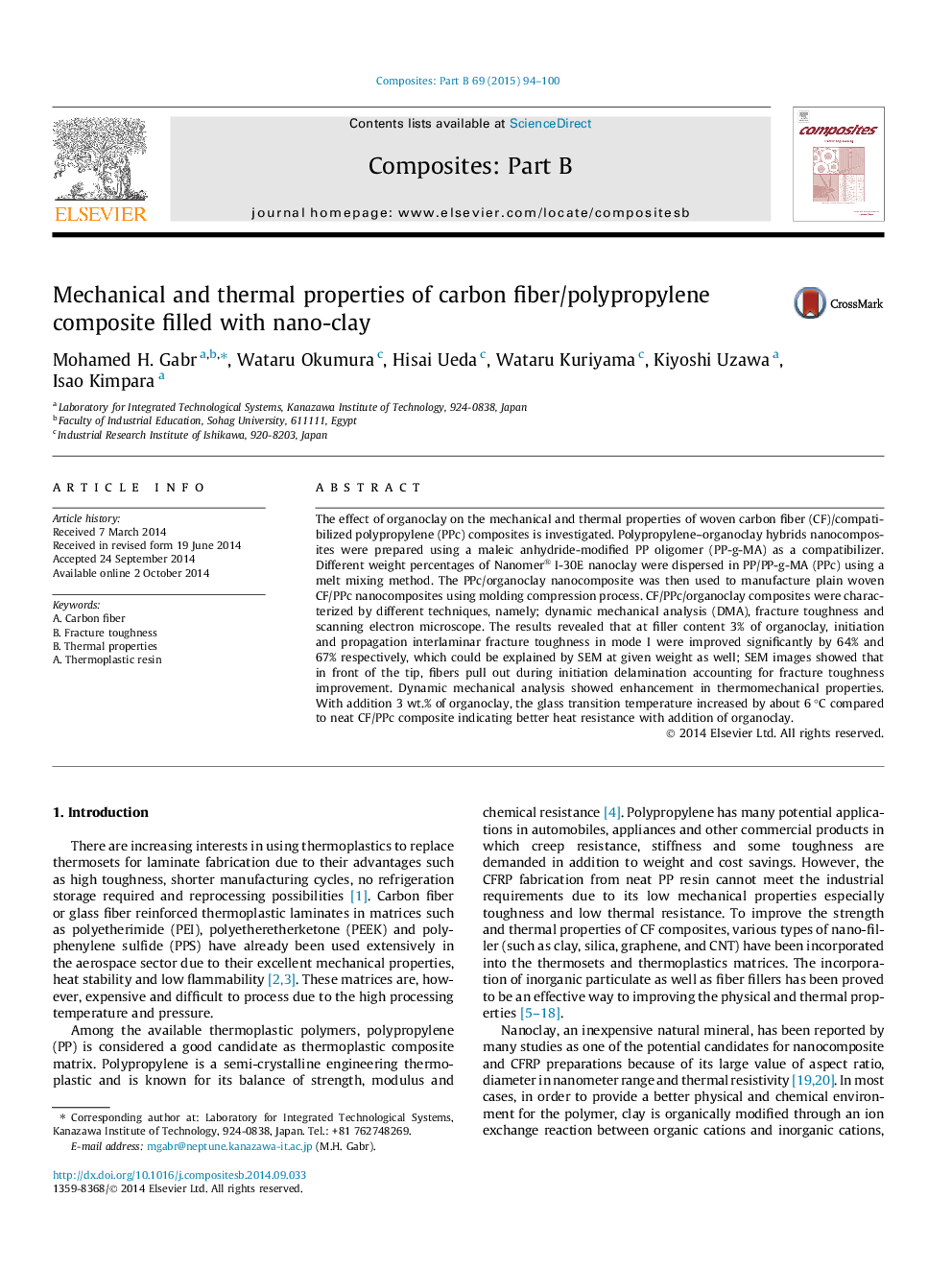| Article ID | Journal | Published Year | Pages | File Type |
|---|---|---|---|---|
| 817559 | Composites Part B: Engineering | 2015 | 7 Pages |
The effect of organoclay on the mechanical and thermal properties of woven carbon fiber (CF)/compatibilized polypropylene (PPc) composites is investigated. Polypropylene–organoclay hybrids nanocomposites were prepared using a maleic anhydride-modified PP oligomer (PP-g-MA) as a compatibilizer. Different weight percentages of Nanomer® I-30E nanoclay were dispersed in PP/PP-g-MA (PPc) using a melt mixing method. The PPc/organoclay nanocomposite was then used to manufacture plain woven CF/PPc nanocomposites using molding compression process. CF/PPc/organoclay composites were characterized by different techniques, namely; dynamic mechanical analysis (DMA), fracture toughness and scanning electron microscope. The results revealed that at filler content 3% of organoclay, initiation and propagation interlaminar fracture toughness in mode I were improved significantly by 64% and 67% respectively, which could be explained by SEM at given weight as well; SEM images showed that in front of the tip, fibers pull out during initiation delamination accounting for fracture toughness improvement. Dynamic mechanical analysis showed enhancement in thermomechanical properties. With addition 3 wt.% of organoclay, the glass transition temperature increased by about 6 °C compared to neat CF/PPc composite indicating better heat resistance with addition of organoclay.
